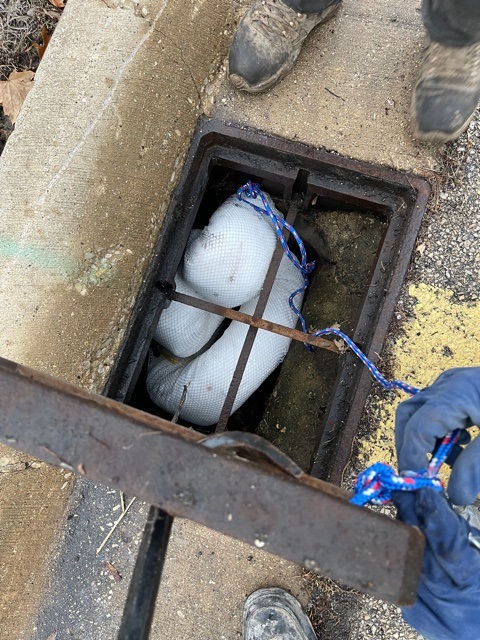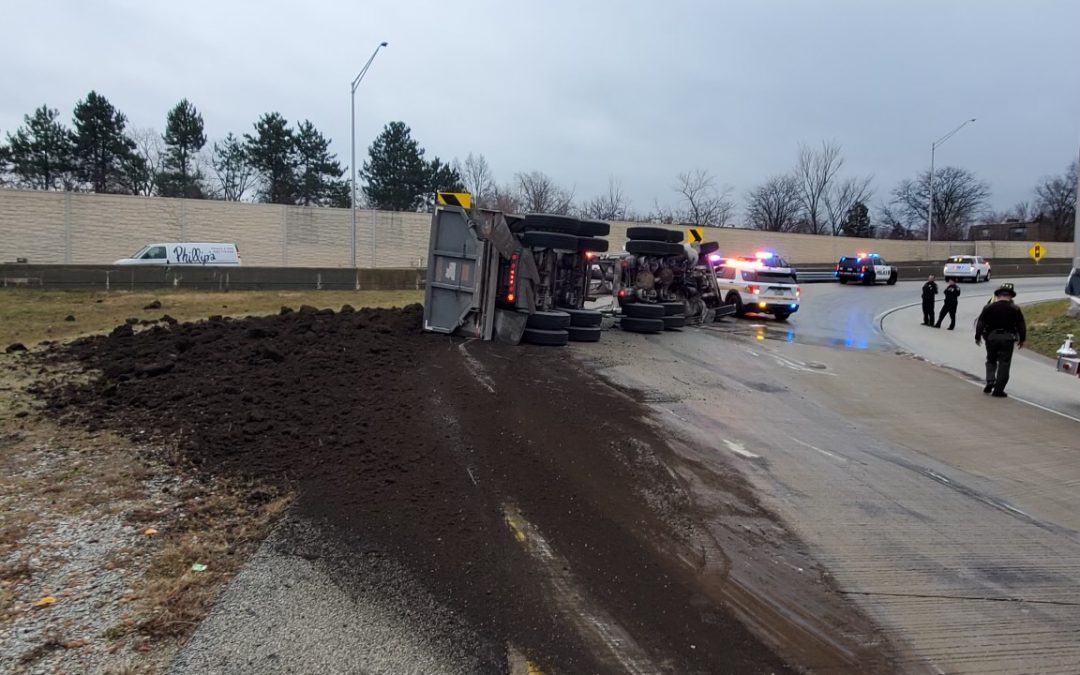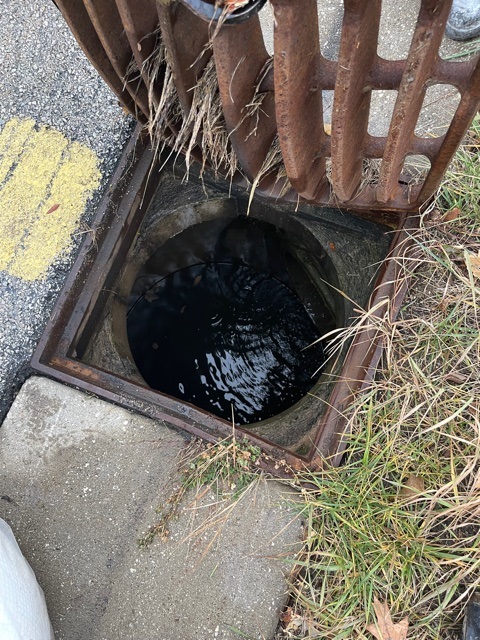A Roadside Truck Spill of Fuel Can Pose Significant Hazards
Problem: Rollover Truck Accident With Fuel Spill
HazChem was called to the scene of a rollover truck accident on a ramp to a major highway in the Chicago area. HazChem was needed for fuel spill cleanup from the truck fuel that spilled onto the roadway and into the sewers, causing major safety and environmental issues.
Solution: HazChem Emergency Crew Provides Quick Fuel Spill Cleanup
The HazChem Emergency Response Team arrived on scene in under 60 minutes. They immediately positioned their Emergency Response vehicle to act as safety barrier for theTeam. The technicians removed four sewer hole covers and inserted seven absorbent boom socks. The crew returned the next day to clean up the sand and oil-dry that were on the ground from the spill. The crew used a Bobcat Skid-Steer with Sweeper to clean up the affected area. The waste was dumped into a roll off dumpster and hauled away.

Potential Hazards Associated with Spilled Fuel Entering a Sewer System:
-
- Fire and Explosion Risk: Fuel, especially gasoline and diesel, is highly flammable. A spillage of fuel near a roadway can create a fire hazard, particularly if there are nearby ignition sources such as vehicles, cigarettes, or electrical equipment. Even a small spark can ignite the fuel vapors, leading to a fire or explosion.
- Health Risks from Inhalation: Fuel spills release volatile organic compounds (VOCs) into the air, which can be harmful to human health when inhaled. Breathing in fuel vapors can cause respiratory irritation, dizziness, headaches, nausea, and in severe cases, loss of consciousness or asphyxiation.
- Groundwater Contamination: Spilled fuel can seep into the soil and contaminate groundwater, posing a risk to drinking water supplies. Petroleum hydrocarbons, such as benzene, toluene, ethylbenzene, and xylene (BTEX), are common components of fuel and are known to be harmful to human health, even at low concentrations.
- Surface Water Pollution: If the spilled fuel reaches nearby surface water bodies, such as rivers, streams, or lakes, it can cause water pollution. Fuel floats on the surface of water and forms a thin film, preventing oxygen from entering the water and suffocating aquatic organisms. This can lead to fish kills and other adverse effects on aquatic ecosystems.
- Sewer System Contamination: If the spilled fuel enters a sewer system, it can contaminate the wastewater and pose a risk to public health and the environment. Fuel can travel through the sewer pipes, potentially reaching wastewater treatment plants. The presence of fuel in the wastewater can disrupt the treatment process and may require additional treatment measures to remove contaminants before discharging the treated effluent into the environment.
- Soil Contamination: Fuel spills can result in soil contamination, affecting soil quality and fertility. Petroleum hydrocarbons can persist in the soil for long periods, impacting plant growth and microbial activity. Contaminated soil may require remediation measures, such as soil excavation, vapor extraction, or bioremediation, to mitigate the environmental impacts.
HazChem Prioritizes Prompt & Effective Emergency Response for Fuel Spill Cleanup
Overall, roadside truck spills of fuel represent significant environmental and public health hazards, emphasizing the importance of prompt and effective response measures to contain the spill, mitigate its impacts, and prevent further contamination of soil, water, and air.
HazChem will keep you in compliance with the regulations and help protect you from further liability. With over 30 years in the waste management business, we are trustworthy, safe, reliable, and compliant. Learn more about HazChem Emergency Rapid Response.

Compliant. Responsive. Safe.
Call 630-458-1910 for immediate assistance. Open 24/7/365
For a FREE, no-obligation quote, click the button below


